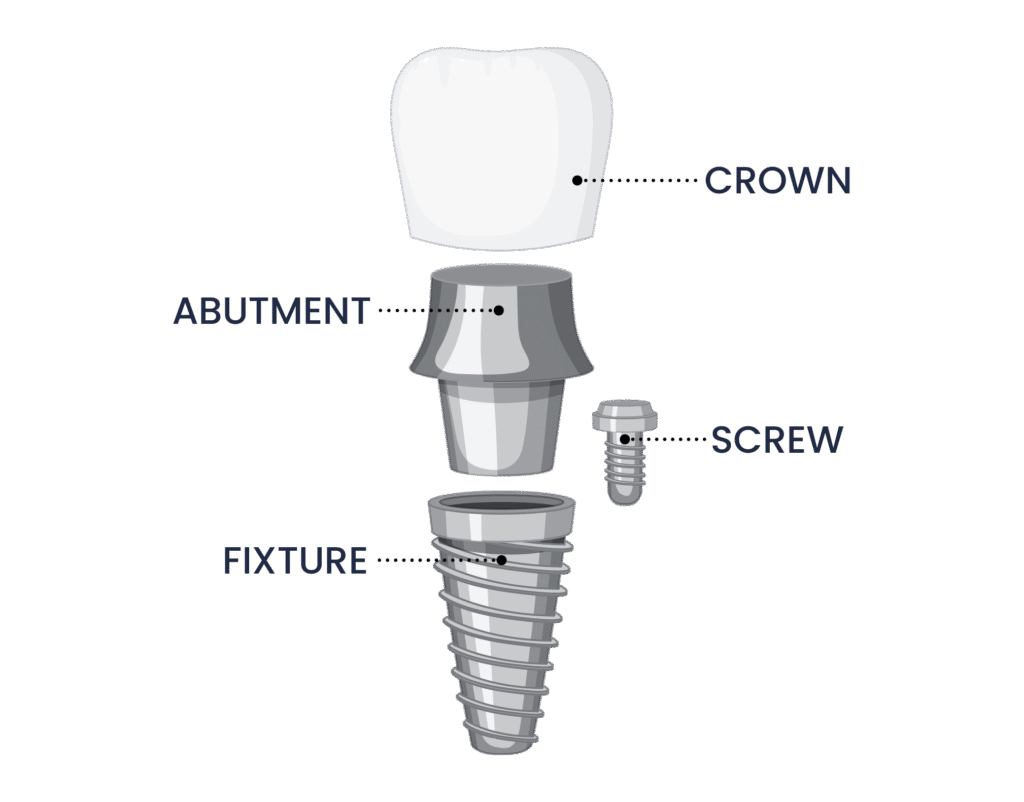Dental Implants in Dumfries
Dental Implants: A Lasting Fix for Missing Teeth
If you are considering Dental Implants in Dumfries, we’re here to support you every step of the way. Our experienced implant dentist will carry out a detailed check-up and recommend the most suitable implant solution for you. Dental implants have become a reliable choice due to their natural feeling and long-term results.

Overview
Dentures and bridges used to be the main choices for replacing missing teeth. While dental bridges can make your teeth look better, your own natural teeth and gums or dentures have to hold them in place, and sometimes they might not stay put. Dental implants at Lochside Dental Dumfries give you a newer way to fix missing teeth and give you back your smile. Shaped like a tooth root and made from titanium alloy, they’re placed in the jaw just wherever there is enough strong bone for support.
Start your journey
In Clinic Visit
Find your nearest clinic in our locations page.
Online Consultation
Find your nearest clinic in our locations page.
Why Choose Dental Implants?
Dental implants in Dumfries have become a trusted choice for replacing teeth due to their strength and stability.
- Bring back your natural smile.
- Speak and eat comfortably again.
- Enjoy a secure and lasting solution.

Restore a Missing Tooth With Dental Implants


What are the Implant steps?
Three Simple Steps:
- Dental Examination & Imaging
- Implant Placement
- Final Crown Attachment
Understanding Dental Implants
Dental implants are now widely used by people who are missing teeth because they’re strong and look just like natural teeth. At Lochside Dental Dumfries we not only do regular dental implants but also a more simple option called mini implants. Because they have a natural appearance, and little care is involved in the process, people prefer using them. With implants made from titanium, the bone will grow into it in the jaw, and it supports new teeth such as bridges or crowns. It also serves the purpose of keeping your bones healthy, and less likely to fracture.


How Long Do Implants Last?
Dental implants consist of three parts. The titanium post, once placed, can last over 20 years if you maintain regular dental visits. It’s strong and binds well with your jawbone. The crown may need to be replaced every 5–15 years depending on the material. Daily brushing and flossing, along with regular cleanings, help keep your implant in good condition. Your dentist will recommend the most suitable crown material.
Step-by-Step Dental Implant Process

Placing the Implant
At your very first visit, we’ll see your oral health and make a plan according to your needs.


Healing and Bonding Period
The titanium post is gently placed into the jawbone. Over time, it bonds with the bone, forming a stable foundation.


Attaching the Abutment
After healing, a support post is added to the implant, ready for the final step.


Fitting the Crown
In the end, a crown is fitted, it will give a natural appearance and feel.


